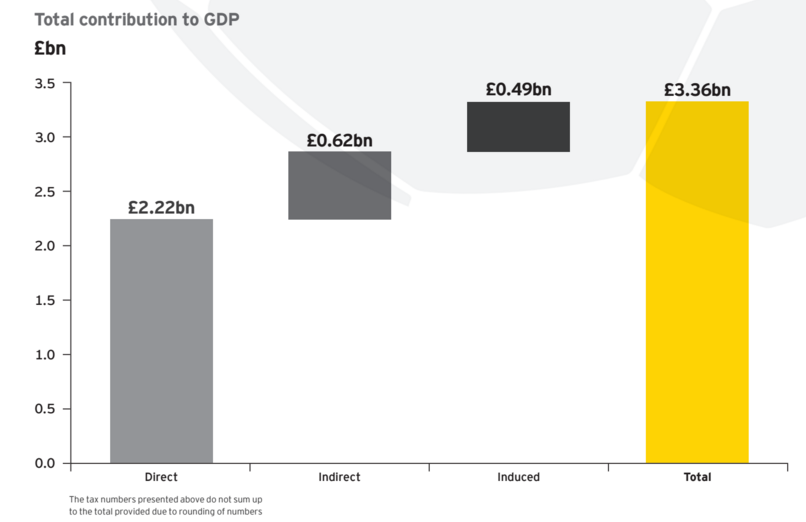Premier League economic impact: Competition contributed £3.4bn to UK GDP according to EY report

Premier League football kicked £6.2bn into the UK economy in a single season, according to a new study from Ernst & Young (EY).
In a study commissioned by the league, EY estimate that English football's top tier division contributed £3.4bn to UK GDP in the 2013/14 season, paid £2.4bn in taxes to the Exchequer and supported over 100,000 jobs.
Total club revenues for the season totaled £3.3bn making it the third richest sports league in the world behind Major League Baseball (MLB) and the National Football League (NFL).
For comparison, the recent Rugby World Cup is estimated to have contributed £2.2bn to the UK economy while the 2012 London Olympics was estimated to have contributed £9.9bn.

(Source: EY)
Mark Gregory, chief economist at EY, said: "The game of football is of considerable economic, social and cultural significance to the UK, and our report is the first attempt to quantify this."
The author of the report, David Mullen, added that the league would likely have an even greater economic impact through other industries such as tourism, broadcasting and gambling not included in the study.
In the 2013/14 season the Premier League enjoyed a 95.9 per cent stadium occupancy, an average attendance of 36,691 and was broadcast in 185 countries to 730m homes.
Business secretary Sajid Javid will today deliver a speech at a conference to discuss the Premier League's economic impact to the UK.
He described it as "one of Britain's most recognised and most popular brands".
Premier League chief executive Richard Scudamore said the report demonstrated "a range of wider benefits to having a successful football competition for the UK as a whole."
He said:
Whether it is Premier League football contributing £2.4bn to the Treasury in tax receipts, the 800,000 visitors to the UK who attended our matches last year, or the Premier League making people feel positively about Britain in countries all over the world, the overarching message of this report is clear: A strong and successful Premier League is good for football, delivers a wide range of benefits to the UK economy and society, and helps drive a positive, diverse and engaging image of Britain on the global stage.